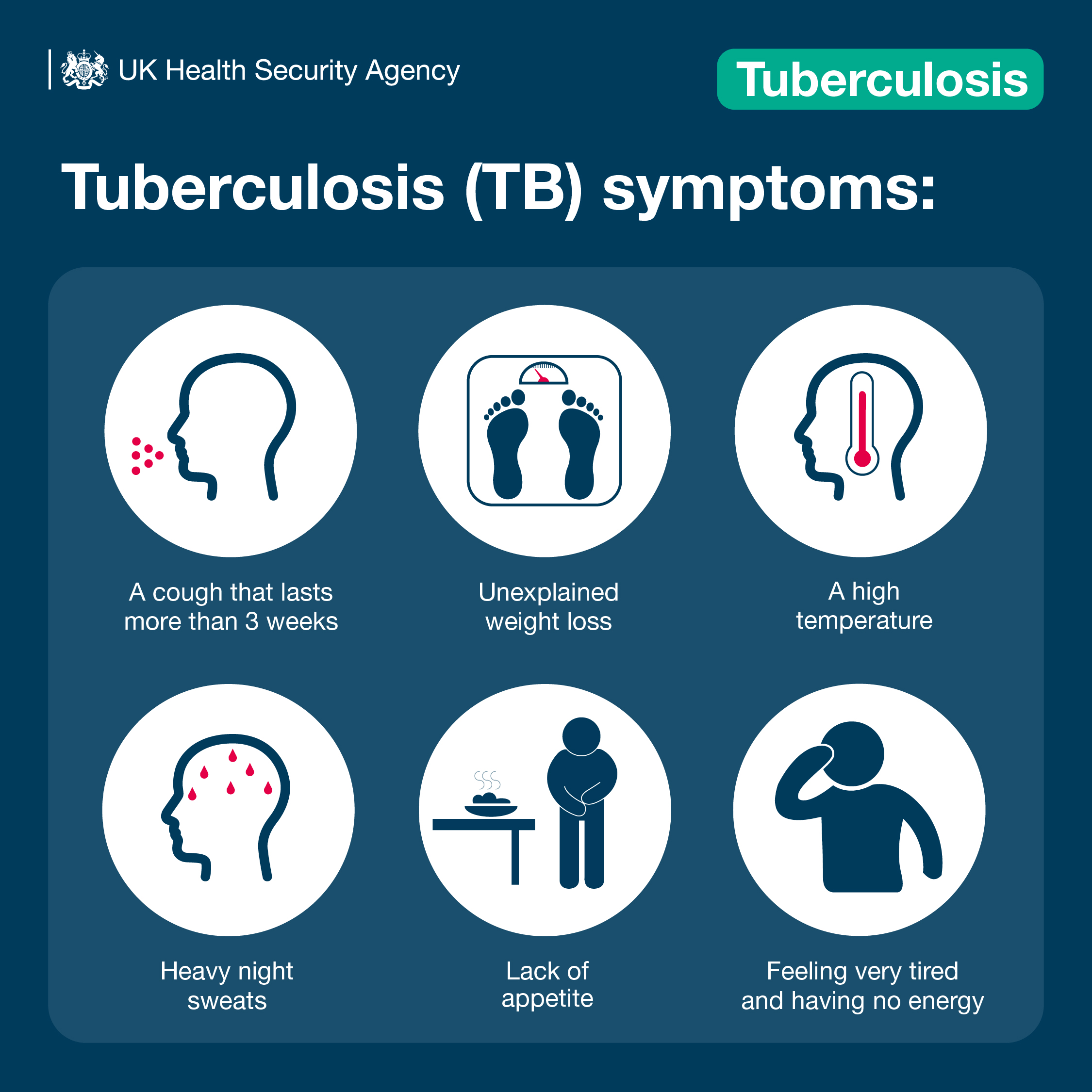
The West Midlands has seen an increase in Tuberculosis (TB) cases over recent months* so Warwickshire County Council (WCC) is asking vulnerable groups to be aware of the signs and symptoms of TB.
Vulnerable groups may include those experiencing homelessness, those who have drug and alcohol dependency, anyone who has contact with prison inmates and anyone who may have moved to England from a country where TB is common.
TB is an infection caused by bacteria. It mainly affects the lungs, but it can affect any part of the body, including lymph nodes (glands), bones and the brain, causing meningitis.
It spreads when a person with TB in their lungs or throat, coughs and sneezes. Symptoms of TB include:
- a cough that lasts more than 3 weeks
- high temperature
- night sweats
- loss of appetite
- weight loss
Shade Agboola, Director of Public Health for Warwickshire County Council said: “TB is preventable and curable, so we want to ensure that everyone knows the signs and symptoms, especially vulnerable groups.
However, it is important to know that anyone can get TB. If you or your child experiences one or more of the symptoms, think TB and contact your GP as soon as possible.
“With early diagnosis, TB can be treated with a long course of antibiotics. Testing for TB is free and confidential and will help you to stay healthy.”
Anyone coming to stay in the UK for six months from a country where TB is common, is required to have a TB test for infectious TB. However, Latent TB Infection (LTBI) is when bacteria can live in someone’s body without making them sick. People will not show signs of LTBI and cannot pass TB on to others. However, it’s important to note that LTBI can be reactivated and can make the person (the host) infectious. Those at most risk from reactivation are people who have lived with an active case within the previous 2 years- this includes family members and children. If you are unsure, you’ve contracted TB, please seek advice about screening from your GP or health practitioner.
There are two ways of identifying those with LTBI, these are: contact tracing, which helps to identify people who have been in close contact with a person with infectious TB to assess whether or not they have been infected with TB.
OR
The LTBI testing and treatment from the NHS for new migrants from countries where TB is common.
For children and young people of parents who are at risk of TB due to travelling or there is a risk factor of TB through their work, the children and young people can have the BCG vaccine. Please note this is not routinely given as part of the NHS vaccination schedule.
For more information, visit Tuberculosis (TB) - NHS